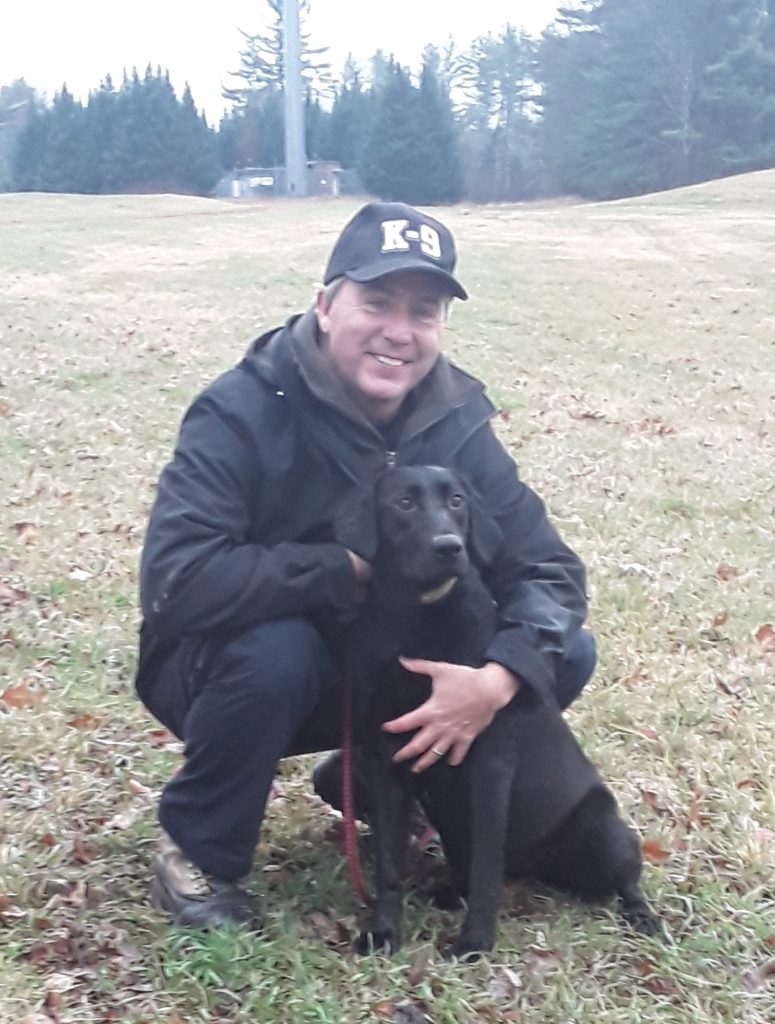HSI Welcomes Search and Recovery Canines
Humanitarian Social Innovations is excited to introduce Search and Recovery Canines (SARC) as a new member of our community.
When Gregory Chown met his first search dog, Krabi, it wasn’t just the beginning of a bond between man and Man’s Best Friend — it was the start of a partnership in the search and recovery of missing persons and remains. The duo would go on to serve on numerous missions, complete hours of intense training, win multiple awards and educate other K-9’s in search and recovery.
“I have always had an interest in the emergency and first responder world. When I got my first dog, Krabi, I wanted her to be more than a pet. I have always been amazed at how dogs can locate missing persons. Together, Krabi and I entered the search and rescue world,” Chown said.
After more than 10 years of volunteering on canine search and recovery missions, including seven years and counting with Middle Creek Search and Rescue, Chown decided it was time to start his own organization: Search and Recovery Canines (SARC).
SARC’s Mission
Through SARC, Chown hopes to inspire and educate others about canine search and rescue through lectures to classes and first responders.
“In the past, I have given talks to coroner’s offices and first responders. I will continue to network with these organizations,” Chown said. He added that he hopes to form new and exciting partnerships with even more organizations as SARC grows.
Chown also plans to host training workshops, starting with the organization’s first workshop in the spring of 2020.
“Search and Recovery Canines allows me a platform to provide education and training to others,” Chown said, “As a university professor [at Alvernia University], I love to teach, learn and do research. This passion, combined with SARC, provides me with opportunities to not only educate but also network and collaborate with other organizations.”
Rewards and Challenges
While search and recovery work can be extremely rewarding — for example, when a team succeeds in finding someone and bringing closure to family and loved ones, Chown noted — there are a number of physical and mental challenges that teams endure behind the scenes.
“There is a significant amount of training,” Chown said. “I train my current dog, Prairie, nearly every day or every other day. There are monthly training sessions with Middle Creek. I also attend two to three intense training workshops hosted by other teams each year. There are numerous certifications that are required, ranging from first aid to FEMA requirements. Dogs are also required to go through certifications.
“As a searcher you are on call 24/7, thus you need to be prepared to leave and search at any time,” Chown continued. “Once called to a search, a search may last for a few hours to days, or even require being called back multiple times. Long and difficult searches can be physically and mentally tiring, and not locating a person can be mentally challenging.”
Other hurdles include funding search and recovery training, and the lack of compensation for rescuers.
“Search and rescue is a volunteer activity. Despite the numerous hours invested, there is no pay received. And there is a significant commitment to not only training your dog, but also yourself,” Chown said. “Aside from time, there are significant costs such as equipment, travel expenses, etc.”
Donations, volunteering and support can help search and recovery efforts, like Chown’s Search and Recovery Canines, continue to grow and help even more people.
Humanitarian Social Innovations is proud to have Search and Recovery Canines join our community of social change, and we look forward to helping it grow its impact. You can donate to the organization below.

